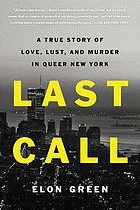 Blair, Steven James. Ra1nbows of th3 Abyss. Brian Wrixon Books. 2012. 90p. PB. 978-0-9917214-4-3.
Blair, Steven James. Ra1nbows of th3 Abyss. Brian Wrixon Books. 2012. 90p. PB. 978-0-9917214-4-3.
I was a wannabe rule-breaker kid, the type to get straight A’s but to idolize those who lived messy, chaotic, and seemingly more free lives. Naturally, I applauded anybody who broke the rules, especially in literature and poetry. When I was in high school, my theatre teacher had an anthology of poems on her desk that I read off and on. I worked my way through the whole thing by the time I graduated. I preferred free verse, but this collection had something different. It was Mark Jarman’s Rebel Angels: 25 Poets of the New Formalism. These were poets who wanted to play by the rules but say something new.
I bring this up because I see the incomplete rejection of poetic rules as the central problem of Steven James Blair’s collection Ra1nbows of th3 Abyss. The poems, while often full of heart, fail to resonate on a deeper level because of structural deficiencies. This collection features an inconsistent over-reliance on rhyme and adds a sing-songy quality to poems that are otherwise rather dark in mood. This repeated trope also leads to a wordiness destroying any regular meter that could have been developed. The mixture of these two constricting elements throughout the collection leads to a choppiness that impedes easy reading. It’s not free verse, but it doesn’t have enough of the formal elements that help traditional-form poems excel. For one example, take the opening to “Against Time”:
Seconds go by
I get that bit of water in my eye
When you turn to me and say … goodbye
Minutes go so fast
I always want your touch to last
One minute more- before it’s in the past
The rhyme forces a wordiness that makes the lines seem both rushed and choppy. The punctuation further stalls an already odd structure. This impression is present in almost every poem in this collection.
I believe that all readers can understand the impulse of saying something and wanting it to be heard, but I think that this collection of poetry could have gained from either an insightful editor or more time to let it grow. Blair has some good lines like “It takes two to tango but it’s got twelve steps.” As it is, however, many of the poems read like first drafts that were dashed off on someone’s long forgotten LiveJournal after a particularly bad night with a boyfriend.
This collection is not recommended for libraries.
Reviewer: John “Mack” Freeman


